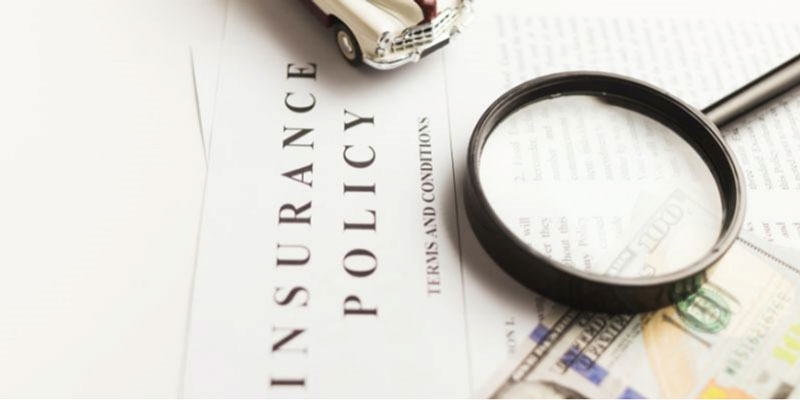Does Insurance Cover a Hit-and-Run: An Overview
Dec 07, 2023 By Triston Martin
If you are the victim of a hit-and-run, your first concern will probably be your safety. But it's also essential to consider the financial implications because they can be significant.
Most car insurance policies cover hit-and-runs, but there are some exceptions. For example, you could not cover if you were driving without insurance or were involved in a hit-and-run accident that could be considered your fault.

Knowing what your policy covers is essential to see the situation if you find yourself in it. And if you don't have car insurance, now is an excellent time to consider getting it. It's the best way to save yourself financially in an accident.
What types of Insurance cover Hit-and-Runs?
Many forms of auto insurance coverage might be able to assess you in a hit-and-run accident by helping to cover both the cost of repairing your car and the costs of your and your passengers' medical treatment.
Depending on your policy and the state, these types of auto insurance protection may include a hit-and-run:
- Collision
- Uninsured motorist
- Medical payments
- Personal injury protection
Collision
When your car is in an accident, collision insurance covers the cost of repairs. Collision coverage may pay the damage minus your deductible if you are the victim of a hit-and-run accident. You can get your deductible back if law enforcement finds the person who hit your car.
Uninsured motorist
All uninsured driver bodily injury insurance may cover medical costs incurred due to a hit-and-run collision. Depending on your state's laws, having uninsured motorist property damage coverage may assist cover some of the costs associated with repairing your car. Some states require that all motorists carry uninsured motorist protection. Even if your state does not mandate it, consider including this valuable insurance coverage in your policy.
Medical payments
Regardless of who was at fault, especially in hit-and-run accidents, medical payments assist in covering your and your passengers' medical costs.
Personal injury protection
Personal injury protection (PIP) coverage, similar to medical payments, compensates for medical expenses for you or your passengers regardless of who was responsible for the accident. It also covers costs like lost earnings and child care due to accidents.
What to do after a hit-and-run?
After being the victim of a hit-and-run, you probably feel a whole range of emotions. Shock, anger, frustration, and fear are just some of them. But one thing you must do is take a step back and assess the situation.
Here are some things you need to do after a hit-and-run:
1. Don't try to track down the hit-and-run driver on your own. Even if the other driver fled the accident scene, you should not leave.
2. Call the police and make a report. It is an essential first step, as it can help authorities track down the driver who hit you.
3. Get medical attention, even if you don't think you're injured. Sometimes injuries can take time to show up, so it's essential to be checked out by a doctor.
4. Contact your insurance company and let them know what happened. They would surely help you with the accident's medical expenses and other costs.
Does liability insurance cover a hit-and-run?
If you get struck by a car, and the driver takes off, you might wonder if your liability insurance will cover the damages. Unfortunately, the answer is usually no.
Liability insurance covers accidents that happen when you're driving your car. It doesn't cover accidents that occur when you're walking or biking. So if you get hit by a moving vehicle, your insurance policy will help pay for the damages. But if the driver takes off, you're out of luck.

You can do a few things for your financial protection after a hit-and-run. You can file a police report, and you can also make an insurance claim. But remember that getting reimbursed might require a while, and there's no guarantee that you'll receive any money.
Stay safe and calm, and being aware of your surroundings are the best strategies to adopt. And if you do get hit by a car, make sure to document everything—the accident, your injuries, etc.—so you have proof if you decide to file a claim.
Does a hit-and-run claim your insurance progressive?
When you get hit by a driver who takes off, your first concern may be dealing with the aftermath and your injuries. But it's essential to think about the financial implications too.
Chances are, your insurance company won't cover a hit-and-run. These accidents are typically considered intentional, and most insurers exclude them from coverage.
But all is not lost. You can protect yourself financially after a hit-and-run by doing a few things. One is to file a police report. It will help you prove that the accident happened and may also help track down the driver who took off.
You can also contact your state insurance commissioner to report the incident. And if you have collision coverage, your policy may help cover some of the costs related to the accident.
Conclusion:
A hit-and-run can be a devastating event, both physically and financially. If a hit-and-run driver strikes you, your first step should be to file a police report and seek medical attention.
After that, you'll need to contact your insurance company to file a claim. Most insurance policies will cover hit-and-runs, but it's important to know what's covered and what's not.
You can secure yourself financially after a hit-and-run accident. Ensure you have adequate insurance coverage, keep track of your medical expenses, and contact an attorney if you need help filing a claim.
A hit-and-run can be a traumatic experience, but with the right insurance coverage and some planning, you can protect yourself financially.

Ways To Manage Your Bank Accounts When Self-Employed
The ability to set your hours, work from various places and take time off whenever convenient all come with the territory when you're your boss. When you are your own boss, you are responsible for various responsibilities, including managing your company's finances, creating and adhering to a budget, and preparing to fulfil any applicable tax obligations
Jan 27, 2024 Triston Martin

Documents Which I Need To File My Taxes
After you have submitted your tax return, you will most likely not feel the need to maintain all of the information associated with it, including your W-2, 1099s, and other documents.
Dec 18, 2023 Triston Martin

Does Insurance Cover a Hit-and-Run: An Overview
Insurance does cover hit-and-run incidents, but the coverage that protects you are usually optional. In the event of a hit-and-run, make sure you are sufficiently protected
Dec 07, 2023 Triston Martin

What makes a city a financial center?
Cities with high concentrations of business, trade, real estate, and banking frequently develop into major international financial centers. Examples worldwide include London, New York City, Hong Kong, Singapore, San Franciso, and Tokyo.
Oct 09, 2023 Triston Martin

The Impact of Modernizing the Alcohol Tax: An Economic Perspective
Explore the multifaceted impact of modernizing alcohol tax on industry dynamics, consumer behavior, public health, and government revenue. A comprehensive guide on a complex issue.
Jan 17, 2024 Susan Kelly

When You Finally Retire, How Much Money Will You Have To Pay In Taxes?
A decreased tax burden is a goal shared by everybody. One possible solution is to move to a tax-free state. There are currently no state income taxes in Alaska, Florida, Nevada, North Dakota, Chattanooga, Texas, or Wyoming. Investments but capital gains are subject to taxation in the state of Washington, except for high earnings. As of January 1, 2021, Tennessee no longer taxes interest but investment income, thanks to the elimination of the Hall income tax. For its part, New Hampshire levies interest and income from investments but plans to eliminate the surcharge by 2023. By the year 2027, there will be nine states that do not charge an individual income tax.
Nov 25, 2023 Triston Martin